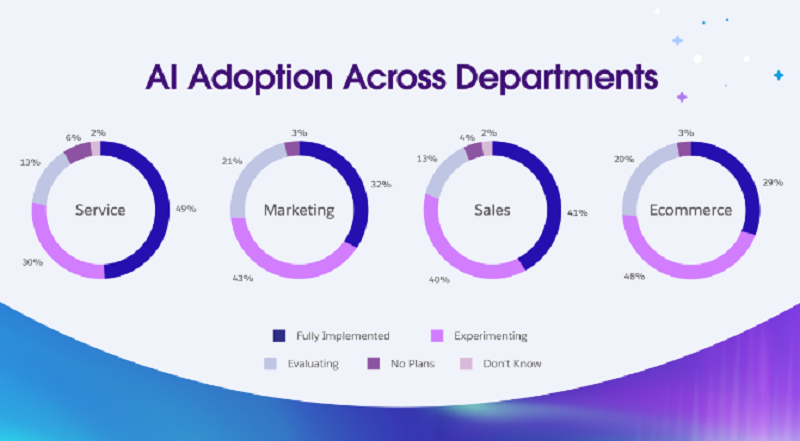General
African Lawyers Advocate Strong Data Privacy, Security Laws

By Aduragbemi Omiyale
Lawyers across Africa have advocated strong data privacy and protection laws on the continent, especially now that there are more activities in cyberspace.
Lawyers in Ghana, Kenya, Madagascar, Morocco, Nigeria, Rwanda, South Africa, Togo, Uganda and Zimbabwe recently commented on this issue in Baker McKenzie’s new Africa Data Security and Privacy Guide.
It was observed that the COVID-19 pandemic drove home the high value of personal data to the global economy, while also highlighting its vulnerability to abuse and attack.
In response, governments around the world, including those in Africa, have been reviewing their data privacy and protection laws and regulations to ensure they are adequately protected.
A Partner at Templars Law Firm in Nigeria, Ijeoma Uju, noted that it was imperative that African countries develop a strong and more coherent framework for data protection by enacting comprehensive laws and regulations for the protection of personal data and privacy of its citizens.
She said that the growth of e-commerce and business in general in African countries makes the need for data protection more pressing.
Multinational organizations looking for investment opportunities in these countries may limit their business explorative activities in Africa due to the absence of, or lack of clarity around, data protection law.
This is particularly because multinational companies collect and process a large amount of personal data in the ordinary course of their business. Thus, in order to conduct business effectively and safely in Africa, organizations need to understand the scope of data protection laws in such countries.
As for Enid Baaba Dadzie, Senior Associate at Kimathi & Partners in Ghana, the African Union has adopted the African Union Convention on Cybersecurity and Personal Data Protection (also known as the Malabo Convention).
This Convention encourages AU member states to recognise the need to protect critical cyber/ICT infrastructure, personal data and the free flow of information, with the aim of developing a credible digital space in Africa.
However, it has not taken effect as only a few countries in Africa have ratified it. Some African countries have implemented domestic laws and regulations to protect personal data, while others offer little to no protection.
“In light of the current technological trends and innovations, and digital trade, it is imperative for African countries to implement data privacy and protection policies. African countries must have laws that take care of the local nuances and fit the local context, without simply replicating the provisions of the General Data Protection Regulations (GDPR) and other frameworks,” she said.
Arnold Lule Sekiwano, Partner at Engoru, Mutebi Advocates in Uganda, explained that recently, there has been an upsurge in the data processing industry in respect of the data mining and data analytics areas.
“The COVID-19 pandemic has also led to an increase in remote access to information and data globally. It is therefore imperative that African countries raise awareness, invest in training and set up relevant infrastructure to enable the implementation of data privacy and protection.
“There is a vast need for autonomous data protection and privacy regulatory bodies which can independently impose and collect fines so that funds are not lost in corruption and embezzlement, and so that personal data is lawfully collected and processed, and breaches are managed throughout the continent, to promote economic and social development,” he said.
Amalia Manuel, Partner at Atherstone & Cook in Zimbabwe agreed, stating that it was “crucial for African countries to put in place laws regulating the protection of data in light of global technological advancements.
Sonal Sejpal, Partner at ALN Kenya | Anjarwalla & Khanna also stated that Africa was more connected now than ever to the rest of the world in terms of trade, and the increasing number of foreign entities doing business in Africa.
“The natural consequence of this is that personal data will continue to move across borders. Therefore, it is imperative that data privacy and data protection laws are implemented across the continent,” she explained.
The benefits of such laws are numerous. Sonal noted, “With the implementation of data protection laws, the resultant effect is that there will be more protections to data subject rights.”
“Additionally, Africa will have more control over those who process the personal data of data subjects present in Africa, limiting what they can do with personal data once collected, and throughout the life cycle of processing personal data.
“Furthermore, African countries will be able to exert more influence over the transfer of personal data from African countries, both intra-Africa and inter-Africa. This will ensure that measures are in place to secure personal data during personal data transfers,” she said.
Raphael Jakoba, the Managing Partner at MCI Law Firm in Madagascar, concurred that it was essential for African countries, such as Madagascar, to adapt to the evolution of technologies and the new realities of digital development.
“These new issues raise new risks and problems that African countries must imperatively address, and to which they must respond through the adoption of modern and updated regulations,” he said.
Pierre Deprez, an Associate at Nasrollah & Associés Baker McKenzie in Morocco, said, “Baker McKenzie in Morocco, noted, “Having strong regulations on data protection is nowadays crucial in Africa in general, and especially in Morocco, regarding the exponential rise of data processing due to the use of smartphones and e-commerce this past decade.
“On the one hand, it ensures the protection of citizens and their fundamental rights. On the other, a solid data protection law helps to reassure the foreign investor/interlocutor who wishes to exchange personal data for business purposes.”
Saad Khaldi, an Associate at Nasrollah & Associés Baker McKenzie in Morocco, agreed, “Strong data privacy regulation should be seen by African countries and businesses as a competitive advantage in a globalized world, where local and international data processing is key to gaining profitability.”
Emmanuel Muragijimana, Principal Associate at K-Solutions & Partners in Rwanda, commented that data was increasingly becoming an important asset, and collecting and sharing data could serve as big business in the present day’s digital economy. In addition, citizens are also increasingly becoming aware of the importance of protecting one’s personal data.
“African countries, therefore, cannot afford to be left behind. They have to ensure that they put in place legislation to secure the protection of data and privacy in order to prevent issues stemming from unprotected data, such as unauthorized use of one’s personal data without their knowledge, as well as the negative impact on a company or organization’s reputation should it face sanctions, among other factors,” he explained.
Janet MacKenzie, Partner and Head of the IPTech Practice at Baker McKenzie in South Africa, said that rapid digitization, boosted by the pandemic, meant that it is now critical to implement policy, legislative and regulatory frameworks that are intended to guide and enforce the protection and security of personal data, not just in Africa but around the world.
“Failure to do so will lead to business failure, massive financial loss, loss of investment and a devastating rise in criminality,” she noted.
Kafui Achille Amekoudi, Avocat at AMKA Law Firm in Togo (Cabinet Me AMEKOUDI), explained that the penetration rate of the internet in Africa was constantly increasing because Africa has realized the importance of the internet as a vector of development.
“With a population of more than a billion inhabitants, Africa is potentially a huge mine of personal data, which explains the proliferation of GAFAM projects to better connect the continent. It is therefore important, already at the primary stage, to regulate data privacy and protection,” he said.
General
Nigeria Signs Defence Joint Venture with Terra Industries

By Adedapo Adesanya
Nigeria has signed a joint venture with defence technology company, Terra Industries Limited, as part of efforts to boost the country’s defence industrial capacity and advance indigenous high-technology development.
The Defence Industries Corporation of Nigeria (DICON) and Terra signed a Memorandum of Understanding (MoU) for the establishment of the Joint Venture Company (JVC), both parties announced on Monday.
The partnership provides a robust framework for the local production, assembly, research and development (R&D), and training in high-technology systems, including drones, cybersecurity solutions, robotics, and other ancillary software and hardware platforms.
The MoU, executed pursuant to the DICON Act 2023, underscores DICON’s statutory mandate to collaborate with indigenous and foreign defence-related industries through Public-Private Partnerships. Under the agreement, the Joint Venture Company will operate as a subsidiary of DICON, jointly promoted and owned by DICON and Terra Industries, and duly incorporated in Nigeria.
This marks the latest move by Terra, which recently became a $100 million company, following recent raises from investors including Flutterwave CEO, Mr Gbenga Agboola, American actor Jared Leto as well as 8VC founded by the co-founder of Palantir Technologies Inc., Mr Joe Lonsdale. Other investors included Valor Equity Partners, Lux Capital, SV Angel, Leblon Capital GmbH, Silent Ventures LLC, Nova Global.
Terrahaptix, founded by Mr Nathan Nwachukwu and Mr Maxwell Maduka, are using the new funding to expand Terra’s manufacturing capacity as it expands into cross-border security and counter-terrorism.
The latest agreement with DICON is designed to establish advanced production and assembly lines for high-tech equipment within Nigeria, while promoting meaningful technology transfer, skills development, and specialised training for Nigerian personnel.
It also aims to strengthen local sourcing of raw materials, reduce dependence on imports, and enhance domestic industrial capacity and strategic autonomy. Additionally, the partnership will support the supply of security equipment to the wider Nigerian security agencies, other security agencies, positioning Nigeria as a competitive player in the global defence manufacturing sector.
Under the agreement, Terra Industries will provide technical expertise, professional services, and training, and will attract both local and foreign investment to strengthen the defence industrial ecosystem.
The company will also facilitate the procurement of production equipment, coordinate local and international training programmes, and provide access to manufacturing know-how, tooling, spare parts, and established defence sector supply chains.
Speaking on this, Mr Nathaniel Nwachukwu, CEO of Terra Industries, noted that the partnership “Demonstrates confidence in indigenous Nigerian engineering capability and creates a platform for sustainable defence technology development, innovation, and export competitiveness.”
On his part, Major General BI Alaya, the Director General of DICON, described the agreement as “A transformational step toward strengthening Nigeria’s defence manufacturing base, reducing import dependence, and positioning Nigeria as a regional hub for advanced innovation.”
The need for security has risen in recent years, as groups such as Islamic State and al-Qaeda are gaining ground in Africa, converging along a swathe of territory that stretches from Mali to Nigeria.
General
Deep Blue Project: Mobereola Seeks Air Force Support

By Adedapo Adesanya
The Director General of the Nigerian Maritime Administration and Safety Agency (NIMASA), Mr Dayo Mobereola, is seeking enhanced cooperation between the agency and the Nigerian Air Force (NAF) with the aim of strengthening tactical air support within the Deep Blue project.
During a courtesy visit last week, Mr Mobereola told the Chief of Air Staff, Air Marshall S. K. Aneke at the NAF Headquarters in Abuja, that the Air Force was a strategic partner in enhancing maritime security in Nigeria and sustaining the momentum of the Deep Blue Project’s success.
According to the DG, “We are here to seek the Air Force’s support, given the importance of tactical air surveillance to the Deep Blue Project. Nigeria is the only African country with a record of zero piracy within the last 4 years. The Deep Blue Project platforms have been used to achieve zero piracy and sea robberies in the Gulf of Guinea, and we need your collaboration to sustain this momentum”.
He further emphasised that international trade depends on security, which is why vessels prefer to go to or transit through countries where they are secured. “With the traffic we have now, we need to show more security might through collaboration to strengthen our trade viability because of the risks attached to our route. We need these collaborations to sustain what we have achieved so far with the Deep Blue Project”.
The NIMASA DG expressed hope that the collaboration with the Nigeria Air Force will reduce response time.
On his part, the Chief of Air Staff, Air Marshall S.K. Aneke, noted that the Air Force desires to be “a very supportive and collaborative partner with NIMASA and is ready to match the Agency step by step and side by side to achieve the desired results.”
He noted that “collaboration between NIMASA and the Nigerian Air Force under the Deep Blue Project can be strengthened through a joint strategic framework, integrated command structures, and a standing steering committee to ensure shared objectives and accountability.
“Establishing a joint maritime domain awareness fusion cell will enable real-time intelligence sharing, synchronised surveillance, and faster response to maritime threats and ensure sustained operational effectiveness across Nigeria’s territorial waters and exclusive economic zone,” he said, according to a statement.
The Air Force Chief added that the Air Force can also support NIMASA outside the Deep Blue Project operations by providing its own ISR platforms, tactical air support, and rapid airborne deployment for interdictions and search and rescue missions.
While thanking the NIMASA DG for the basic trainings the Agency has provided the aircraft pilots under the Deep Blue Project, Air Marshall Aneke also highlighted areas of operational challenges needing NIMASA’s attention to include bridging the communication gap between NAF operators and NIMASA, higher level and in-depth maintenance trainings, readily available fueling of aircrafts to avoid delays on missions, and provision of flying kits among others.
He therefore pledged the Air Force’s collaboration and assured that the request by NIMASA has been noted and that things will begin to move at thrice its speed going forward.
General
Nigeria’s Democracy Suffocating Under Tinubu—Atiku

By Modupe Gbadeyanka
Former Vice President, Mr Atiku Abubakar, has lambasted the administration of President Bola Tinubu for the turnout at the FCT Area Council elections held last Saturday.
In a statement signed by his Media Office, the Adamawa-born politician claimed that the health of Nigeria’s democracy under the current administration was under threat.
According to him, “When citizens lose faith that their votes matter, democracy begins to die. What we are witnessing is not mere voter apathy. It is a direct consequence of an administration that governs with a chokehold on pluralism. Democracy in Nigeria is being suffocated slowly, steadily, and dangerously.”
He warned that the steady erosion of participatory governance, if left unchecked, could inflict irreversible damage on the democratic fabric painstakingly built over decades.
“A democracy without vibrant opposition, without free political competition, and without public confidence is democracy in name only. If this chokehold is not released, history will record this era as the period when our hard-won freedoms were traded for fear and conformity,” he stressed.
Mr Atiku said the turnout for the poll was below 20 per cent, with the Abuja Municipal Area Council (AMAC) recording 7.8 per cent.
He noted that such civic participation in the nation’s capital, the symbolic heartbeat of the federation, is not accidental, as it is the predictable outcome of a political environment poisoned by intolerance, intimidation, and the systematic weakening of opposition voices.
The presidential candidate of the People’s Democratic Party (PDP) in the 2023 general elections stated that the ruling All Progressives Congress (APC) under Mr Tinubu has pursued a deliberate policy of shrinking democratic space, harassing dissenters, coercing defectors, and fostering a climate where alternative political viewpoints are treated as threats rather than contributions to national development.
He called on opposition parties and democratic forces across the country to urgently close ranks and forge a united front, declaring, “This is no longer about party lines; it is about preserving the Republic. The time to stand together to rescue and rebuild Nigeria is now.”
-

 Feature/OPED6 years ago
Feature/OPED6 years agoDavos was Different this year
-
Travel/Tourism10 years ago
Lagos Seals Western Lodge Hotel In Ikorodu
-

 Showbiz3 years ago
Showbiz3 years agoEstranged Lover Releases Videos of Empress Njamah Bathing
-

 Banking8 years ago
Banking8 years agoSort Codes of GTBank Branches in Nigeria
-

 Economy3 years ago
Economy3 years agoSubsidy Removal: CNG at N130 Per Litre Cheaper Than Petrol—IPMAN
-

 Banking3 years ago
Banking3 years agoSort Codes of UBA Branches in Nigeria
-

 Banking3 years ago
Banking3 years agoFirst Bank Announces Planned Downtime
-

 Sports3 years ago
Sports3 years agoHighest Paid Nigerian Footballer – How Much Do Nigerian Footballers Earn
















